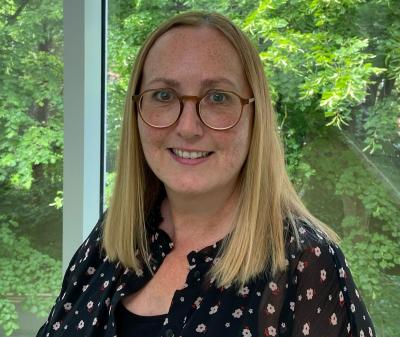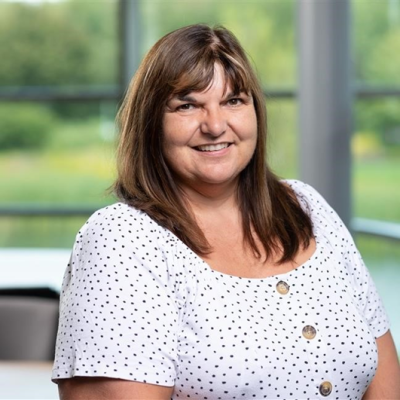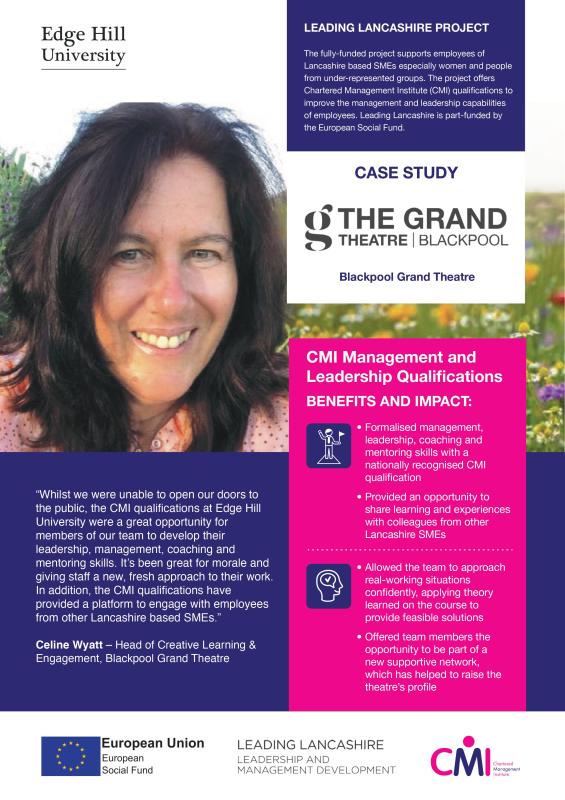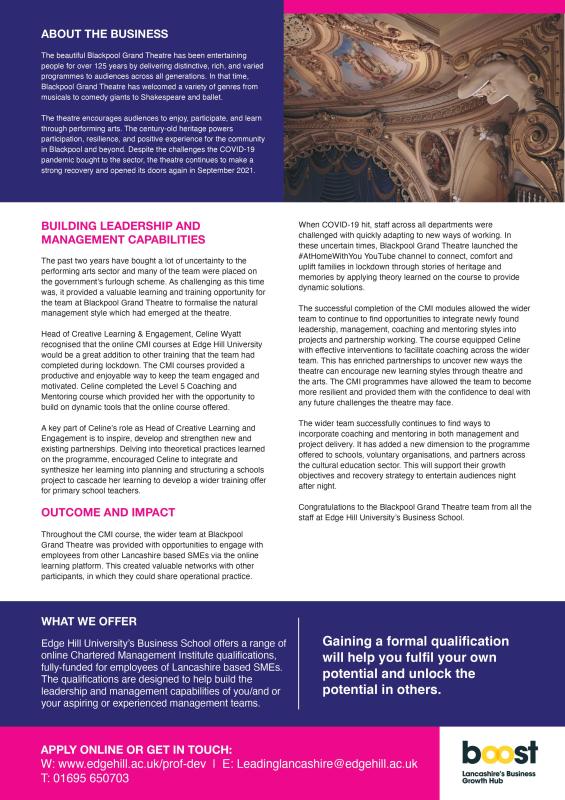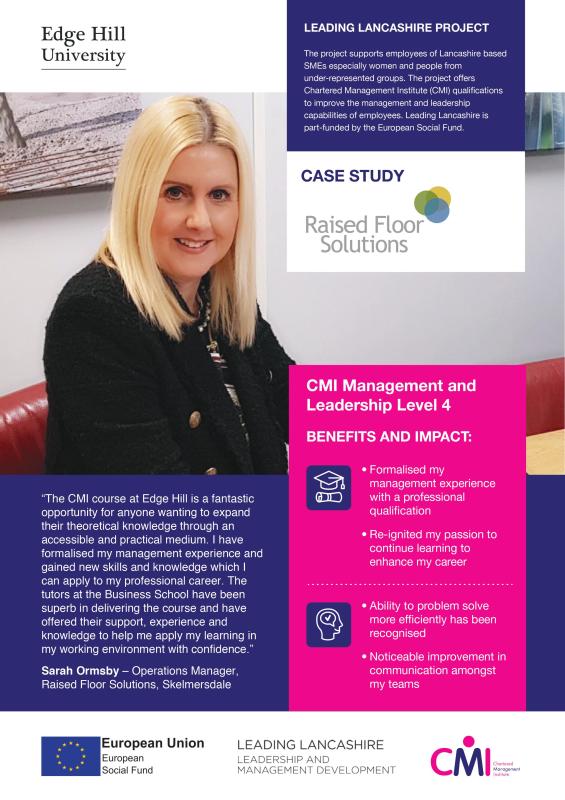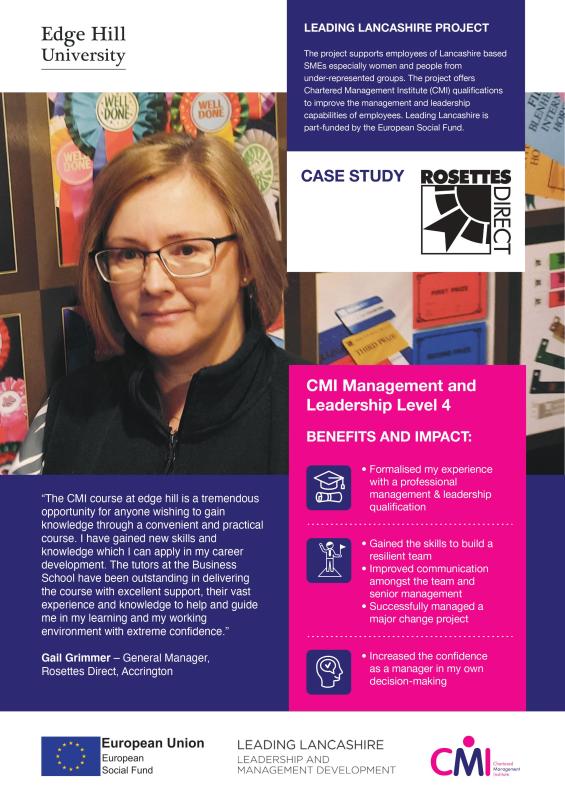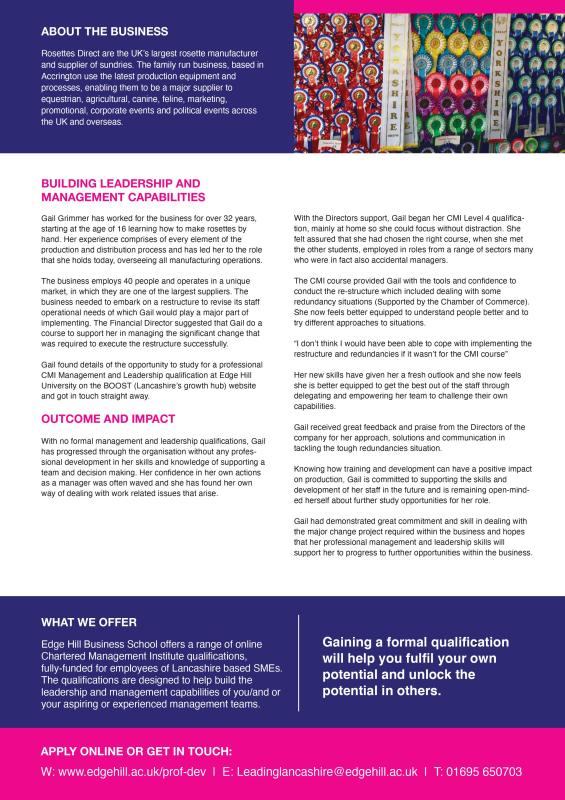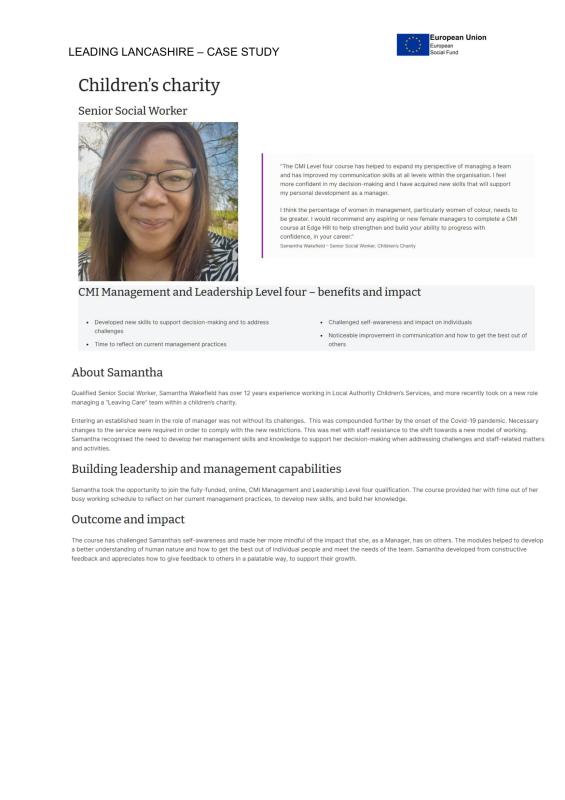The Leading Lancashire project (LL) was a community-engagement initiative designed to identify individuals from groups under-represented in leadership and management positions and support them through formalised training to improve their labour market status.
LL delivered flexible and accessible Chartered Management Institute (CMI) leadership and management professional development courses to improve the skills, capacity and confidence of all participants. LL supported 924 individuals from 392 SMEs.
There is an increasing body of evidence of the positive business impacts from building a more equal, diverse and inclusive (EDI) workforce, including in management and leadership roles.
The LL initiative goes beyond current practice: First, the LL project proactively drove efforts towards the much-needed step-change in embedding the principles of EDI within employers. Secondly, LL employed innovate methods for engaging with so-called communities of ‘hard-to-reach’ SMEs. Finally, LL used innovative approaches in teaching and learning to remove known barriers for individuals to access support (e.g. consideration for those with childcare and caring responsibilities).
LL demonstrated outstanding success in engaging with under-represented communities. LL achieved 924 participants enrolled onto professional leadership and management qualifications. 61% of participants identified as female; 14% from Black, Asian, or minority ethnic communities; 7% identified a physical disability; 5% identified as being a single parent household.







